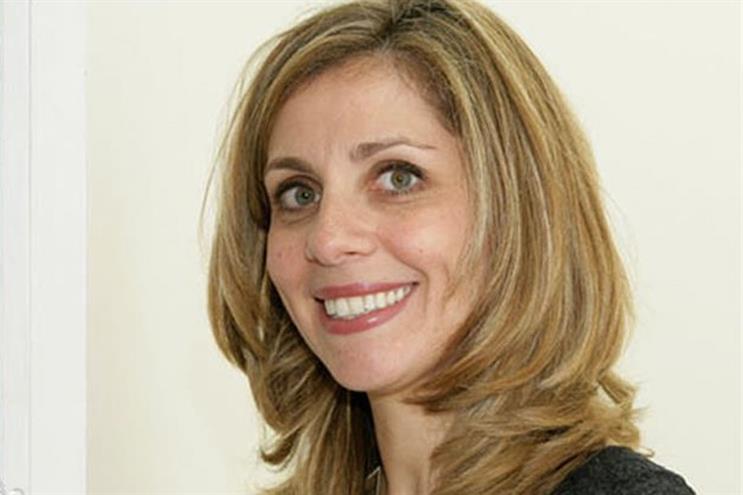
Everybody accepts that senior talent most in demand by agencies and marketing departments isn’t only expensive. There’s also not enough of it to go round.
For the marcoms industry in particular, the solution has been to tap into the pool of experienced men and women eager to find jobs that fit with family commitments by offering them part-time roles.
In doing so, it is reflecting a wider trend among business to become more creative in designing jobs to match the changing demands of the UK workforce.
Timewise, which specialises in helping businesses attract the best talent through flexible working, has this week published its annual Power Part Time list of 50 people working in senior roles on less than full-time hours.
What’s interesting, according to Timewise, is that more than half of those on the list – including a number from advertising and marketing – were actually recruited into their roles on a part-time basis.
Among the powerful part-timers is Christina Lemieux, a mother of three developing global brand strategies for Leo Burnett’s luxury and lifestyle clients, who has worked a four-day week since 2011.
Another is Louise Cruttenden, Diageo’s European innovation marketing director, who works four days a week helping develop brands such as Guinness and Johnnie Walker across 56 countries but also has time to spend with her two young sons.
On the face of it, adland is embracing flexibility. New IPA figures suggest that all the largest creative agencies taking part in its diversity survey offer part-time working while 83% offer home working and 70% staggered hours.
That said, part-time working still has serious image problems. It has always been seen very much as a "women’s issue" and bad for career progression.
"Part-time working has such a negative image that I just wish I could hire an agency to rebrand it," Karen Mattison, Timewise’s joint chief executive, says.
She claims the problem isn’t that staff, particularly in the creative industries, aren’t being offered flexible working but that they can’t retain the arrangement when they are offered promotion.
Mattison believes the big obstacle to overcome is an employer mindset that’s rooted in the 1950s, when jobs were full-time and done by men with wives at home. There are also too few role models like Nicola Mendelsohn (pictured above), who spent 15 years working a four-day week during her agency career before being appointed vice-president, EMEA, at Facebook.
Nevertheless, the changing nature of work is fuelling flexibility. While technology facilitates "anywhere, anytime" work, Mattison points to the growing realisation among companies that flexible work will give them an edge in the battle for talent.
Add to that the growing demands from men – not only because of childcare responsibilities but to bring greater variety to their working lives – and the desire among young staff forced out of London by high property prices to cut down their commuting, and the requirement for flexibility may become overwhelming.
"I believe we’ve reached the tipping point," Mattison concludes. "The time is coming when people will negotiate their flexibility along with their salary package."
 Marketer
Marketer
Louise Cruttenden, European innovation marketing director, Diageo
"At Diageo, we’ve taken a lead in encouraging part-time working, but I don’t believe that’s reflected in the marketing industry as a whole at a time when getting the right work/life balance is becoming increasingly difficult.
"Marketing has always been about stimulating and inspiring people, so we ought to be leading the way in this. If we do, then other industries will follow.
"Of course, there’s a fear in some companies that if they offer part-time working, everybody will want it. But the fact is that it’s not for everybody and it represents a big commitment from both sides."
 HR head
HR head
Liz Nottingham, executive HR director, EMEA, R/GA London
"Keeping a flexible committed workforce is good for business and it surprises me that this remains a topic for discussion.
"The biggest myth is that ‘the client won’t like it’. When I conducted the IPA Future of Work report, senior clients said they would rather retain a good person on the team for a reduced amount of time than lose them from the account.
"People do their best work when they feel valued and respected.
"Flexibility is not a female issue. The pace of life, the unpredictable arrival of the gasman and the delay to see a GP mean that we all need some flexibility in our lives. We need to review an old-fashioned approach to the management of time."
 Agency head
Agency head
Leo Rayman, chief executive, Grey London
"Here at Grey, we have a creative working with us four days a week while running a design company working for clients in London and New York. The fresh thinking and expertise he brings to us is of enormous benefit.
"However, the industry as a whole is allergic to part-time working and that’s unacceptable. You only have to look at how few women there are in creative departments to see what has happened as a result.
"Of course part-time working needs careful managing when big clients want dedicated people on permanent call. But it’s rarely a problem."
 Planner
Planner
Christina Lemieux, global planning director, Leo Burnett London
"The inability to retain female talent is a glaring issue in our industry, which is always intense and where the time pressures are relentless. And if we’re going to change the female leadership gap, we have to explore new paradigms like part-time working.
"Although progress is inhibited by a lack of role models, change is happening but slowly. The impetus may come from the millennial generation, which has a different set of values and wants more flexibility and a better work/life balance. So it isn’t just about retaining female talent but millennial talent as it rises through the ranks.

